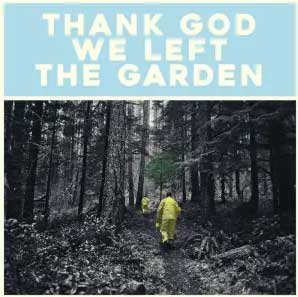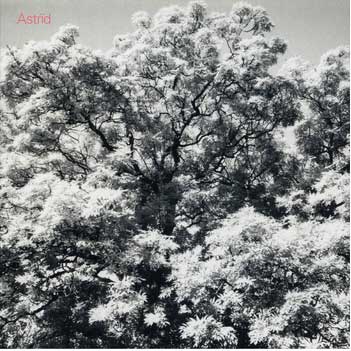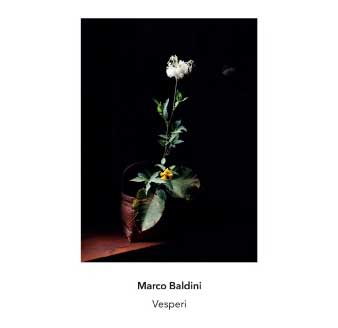


Thank God We Left The Garden, Jeffrey Martin (Loose)
The Way of the Sevenfold Secret, Steve Scott (The Harding Street Assembly Lab)
Always Digging the Same Hole, Astrïd (False Walls)
Exploratorium, Gene Coleman (False Walls)
Darkness and Scattered Light, John Luther Adams (Cold Blue)
Vesperi, Marco Baldini ( Another Timbre)
Jeffrey Martin’s new album is one that tells stories, reports conversations and muses on the human condition, having left the Eden of the title to embrace the mess of contemporary existence. Martin’s angels are boring beings, to be disregarded, and he readily continues to munch on the fruit that got Adam & Eve thrown out back in the day. Recorded in a shed, originally planned as demos, this is a warm, touching album of celebration, observation and participation.
Steve Scott’s is a more mystical offering. His album of poems weaving their way above and through loops, field recordings and simple instrumentation, is conceptually rooted in a text by I. Lillas Trotter, writing at the interface of radical Christianity and Islam, seeking bridges between factions, eager to see similarities between Eastern and Western mysticism, but not afraid to point out differences and disagreements. Scott’s album starts with two brief tracks, one a celebration of ‘Rainbows at Midnight’, the second an elegy for a departed friend.
Then the 25 minute title track begins… an epilogue of bells sound as Scott announces he seeks the light, which begins a journey through metaphor and image: light, door, bread, shepherd, companion, vine and, finally, Life. It is an ambient voyage, a searching liturgy, an engaging, thoughtful album.
The Piano that begins Astrïd’s new album is not a million miles away from the tone of Scott’s music, but here a viola soon enters, then a clarinet. It is indicative of the five tracks which make up this album, a kind of post-rock chamber music, full of space and subtle shading, incremental changes and sustained moods. It is, I confess, not very immediate listening, and it has taken several plays to find a way into it, past the surface near-prettiness and seeming simplicity.
Gene Coleman’s Exploratorium, also on the beautifully designed False Walls label, is much chewier and more difficult listen. The opening piece ‘RITORNO’ is a work for string quartet which traverses across an undulating and sometimes atonal soundscape, with themes and fragments abutting each other throughout the piece’s 17 minutes. I prefer Track 2, which combines voice and electronics, and a text by Lance Olsen, to astonishing effect. The first part of a trilogy, it is followed by a denser, slower piece for several voices and other instruments, before the final part again returns to live electronics and shamisen, as well as a single voice. I initially read shamisen as shamanism, an actually appropriate mistake! This is music as incantation, spell and seduction.
The album is completed by a ‘Transonic Symphony’ in 3 movements, which plays with ideas of simultaneity, conceptually reminiscent (to me) of the way Anthony Braxton has groups and ensembles combine older works. Here, a full orchestra performs Coleman’s work which takes ideas from the way we think, playing with ideas of memory, intuition and comprehension. It’s fascinating and sonically as well as conceptually complex music that is well worth grappling with.
John Luther Adams’ music is often a seemingly easier listen than a lot of contemporary classical music. Often drone based, it can swirl around and surround you, taking you across and into both physical and mental landscapes. Darkness and Scattered Light is in some ways no different, although it is composed for double bass/basses, and evokes night, eclipses, dawn and sunset; glimmers and absence and the desire for light whilst embracing the dark. It is resonant, earthy, sonorous music, particularly the 16 minute title track for five double basses, which rumbles and groans with seismic activity. It is uplifting, dense, dark music.
Marco Baldini’s CD also has double bass on, along with cellos and marimba. It is like listening to waves crash on the beach, sustained drifts of sound which quietly ebb and flow, gradually offering up incremental changes in tone and texture, slowly drawing the listener in. It works best on the three longer tracks, with ‘Malkosh’ being my favourite. It’s a little bit more rhythmic, underpinned by a double bass and is the most seductive track here, with its slow sliding notes and warm embrace. Like most of the music here, it is careful, considered, intriguing music that deserves to be listened to rather than simply overheard.
Rupert Loydell
